
The Crickets were an American rock and roll band from Lubbock, Texas, formed by singer-songwriter Buddy Holly in January 1957. Their first hit record, "That'll Be the Day", released in May 1957, peaked at number three on the Billboard Top 100 chart on September 16th, 1957. The sleeve of their first album, The "Chirping" Crickets, shows the band line-up at the time: Holly on lead vocals and lead guitar, Niki Sullivan on rhythm guitar, Jerry Allison on drums, and Joe B. Mauldin on bass. The Crickets helped set the template for subsequent rock bands, such as the Beatles, with their guitar-bass-drums line-up, performing their own self-written material. After Holly's death in 1959 the band continued to tour and record with other band members into the 21st century.

My Generation is the debut studio album by English rock band the Who, released on 3 December 1965 by Brunswick Records in the United Kingdom, and Festival Records in Australia. In the United States, it was released on 25 April 1966 by Decca Records as The Who Sings My Generation, with a different cover and a slightly altered track listing. Besides the members of the Who, being Roger Daltrey (vocals), Pete Townshend (guitar), John Entwistle (bass) and Keith Moon (drums), the album features contributions by session musician Nicky Hopkins (piano).

Breathe is the fourth studio album by American country music artist Faith Hill. It was released November 9, 1999, via Warner Bros. Records. It won a Grammy Award for Best Country Album. Breathe is one of the most successful country/pop albums to date. It has been certified 8× Platinum by the RIAA, for shipping eight million copies in the US. The album includes the singles "Breathe", "The Way You Love Me", "Let's Make Love", and "If My Heart Had Wings". "Breathe" and "The Way You Love Me" both reached number one on the US Billboard Hot Country Songs chart; the former also peaked at number 2 on the Billboard Hot 100 and was the top pop song of 2000 according to Billboard Year-End. Several of the album's tracks also charted from unsolicited airplay.

Gary Jules Aguirre Jr. is an American singer-songwriter, known primarily for his cover version of the Tears for Fears song "Mad World", which he recorded with his friend Michael Andrews for the film Donnie Darko. It became the UK Christmas number-one single of 2003.
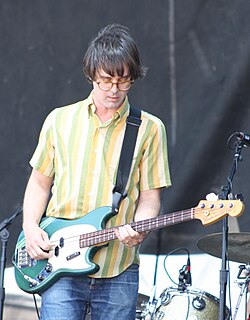
Michael Andrews, also known as Elgin Park, is an American multi-instrumental musician, producer, and film score composer. He is best known for a cover version of the Tears for Fears song "Mad World", which he recorded with Gary Jules for the Donnie Darko soundtrack, and which became the 2003 UK Christmas number one. He is a founding member of the San Diego soul-jazz band The Greyboy Allstars, where he goes by the moniker Elgin Park.
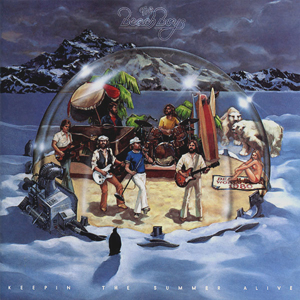
Keepin' the Summer Alive is the twenty-fourth studio album by American rock band the Beach Boys, released March 24, 1980 on Brother, Caribou and CBS Records. Produced by Bruce Johnston, the album peaked at number 75 in the US, during a chart stay of 6 weeks, and number 54 in the UK. It is the group's last album recorded with Dennis Wilson, who drowned in 1983, although he only appears on one song.

When It's All Over We Still Have to Clear Up is the second album by the Scottish-Northern Irish indie rock band Snow Patrol, released on 24 April 2001 in the UK and 5 March in the US.
Something Else or Somethin' Else may refer to:

All Summer Long is the sixth album by American rock band the Beach Boys, released July 13, 1964 on Capitol Records. It was the first LP the group recorded since the British Invasion. The album rose to number 4 in the U.S. during a 49-week chart stay, and was certified gold by the RIAA. Lead single "I Get Around" was issued in May and became the band's first number one hit in the U.S.

"Mad World" is a 1982 song by British band Tears for Fears. Written by Roland Orzabal and sung by bassist Curt Smith, it was the band's third single release and first chart hit, reaching number three on the UK Singles Chart in November 1982. Both "Mad World" and its B-side, "Ideas as Opiates", appeared on the band's debut LP The Hurting (1983). This single was also the band's first international success, reaching the Top 40 in several countries in 1982–83.
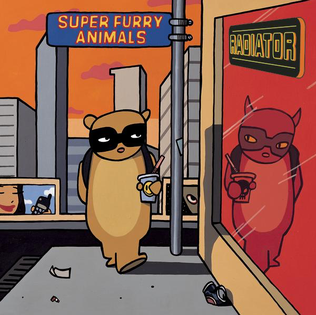
Radiator is the second studio album by Welsh alternative rock band Super Furry Animals. It was released in August 1997 by Creation Records, and later the same year in the United States under Flydaddy Records. It peaked at number eight on the UK Albums Chart. In 2005, it was reissued with a bonus disc of other tracks from the time.

"I Die: You Die" is a song by the British musician Gary Numan, released as a single in August 1980. Released shortly before his fourth album, Telekon, it continued the anthemic style Numan had begun earlier in the year with "We Are Glass". The composer himself described the two singles as "Much the same thing. Both very chorus-orientated with the guitars as the main rhythmic device and the keyboards tinkling over the top".
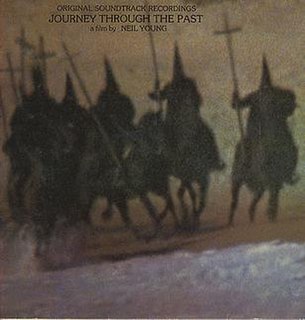
Journey Through the Past is a double LP soundtrack album from the film of the same name by Canadian / American musician Neil Young, released in November 1972 on Reprise Records, catalogue number 2XS 6480. It peaked at #45 on the Billboard 200. Its initial release was on vinyl, cassette tape, reel-to-reel tape, and 8-track tape cartridge. Although its follow-up Time Fades Away was finally released on CD in August 2017, Journey Through the Past has yet to see an official CD reissue.

Still Got the Blues is the eighth solo studio album by Northern Irish guitarist Gary Moore, released in 1990. It marked a substantial change in style for Moore, who had been predominantly known for rock and hard rock music with Skid Row, Thin Lizzy, G-Force, Greg Lake and during his own extensive solo career, as well as his jazz-fusion work with Colosseum II. As indicated by its title, Still Got the Blues saw him delve into an electric blues style.

And Then... Along Comes the Association is the debut studio album by the American sunshine pop band the Association and was released on Valiant Records, in July 1966. It became one of the top-selling LPs in America, peaking at number five, and remains the Association's most successful album release, except for their Greatest Hits compilation. The album's success was primarily credited to the inclusion of their two U.S. hits "Along Comes Mary" and "Cherish", which peaked at number seven and number one respectively on the Billboard Hot 100; "Cherish" was number one on Billboard's Top 40 list for three weeks starting in September 24, 1966.
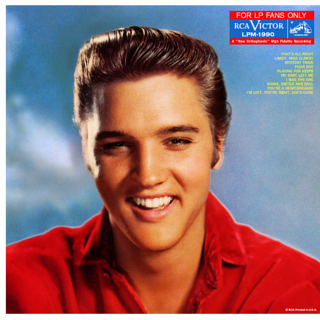
For LP Fans Only is a compilation album by American singer and musician Elvis Presley, issued by RCA Victor in February 1959. It compiled previously released material from an August 1956 recording session at 20th Century Fox Stage One, a September 1956 session at Radio Recorders in Hollywood, sessions on January 10 and 11 at the RCA Victor Studios in Nashville, two more at the RCA Victor Studios in New York, and multiple sessions at Sun Studio. The album reached number 19 on the Billboard Top Pop Albums chart.

I've Got My Own Album to Do is the first solo album by English rock musician Ronnie Wood, released in September 1974. An all-star project recorded outside of his activities with the Faces, it reached number 27 on the UK's NME chart. The album title was thought to be a dig at Rod Stewart, who appeared to be more committed to his solo career than working with the Faces. Wood has said that the title originated from contributors such as George Harrison and Mick Jagger "nagging me to let them go home" and finish their own projects. The album was recorded at The Wick, Wood's house in Richmond, south-west London.

B.B. King in London is a studio album by B.B. King, recorded in London in 1971. He is accompanied by US session musicians and various British rock- and R&B musicians, including Ringo Starr, Alexis Korner and Gary Wright, as well as members of Spooky Tooth and Humble Pie, Greg Ridley, Steve Marriott, and Jerry Shirley.
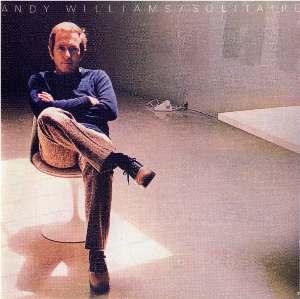
Solitaire is the thirty-first studio album by American pop singer Andy Williams, released in the fall of 1973 by Columbia Records and was an attempt to move away from his formulaic series of recent releases that relied heavily on songs that other artists had made popular.

The Origin was an American alternative/indie rock/power pop band formed in San Diego, California in 1985. The classic line-up of the band consisted of Michael Andrews, Topper Rimel, Rony Abada, and Daniel Silverman. During the band's active years in the early nineties, they released two full-length albums and five singles, with two singles charting in the top 20 of the Billboard Modern Rock Tracks chart. They broke up in 1993.


















